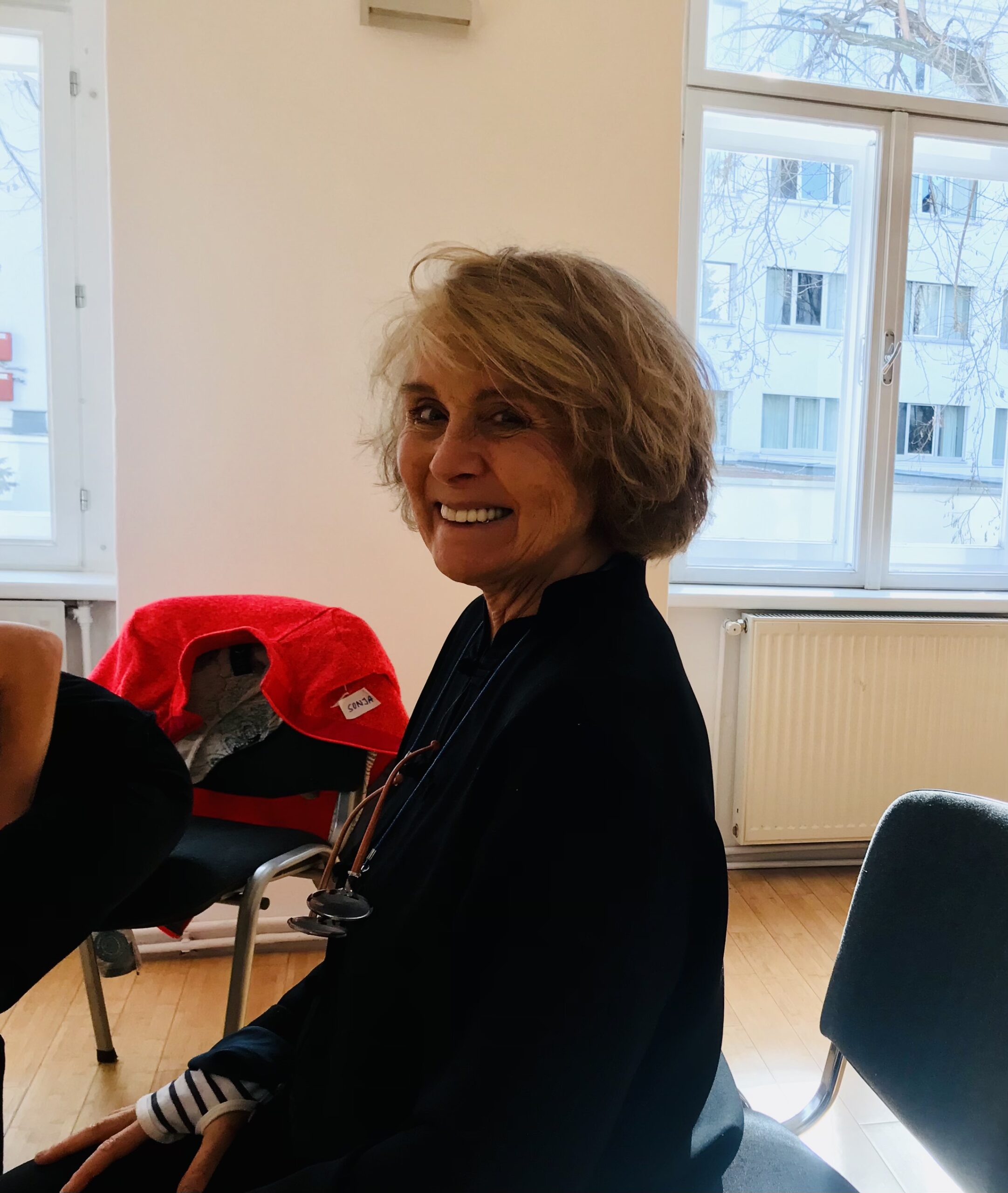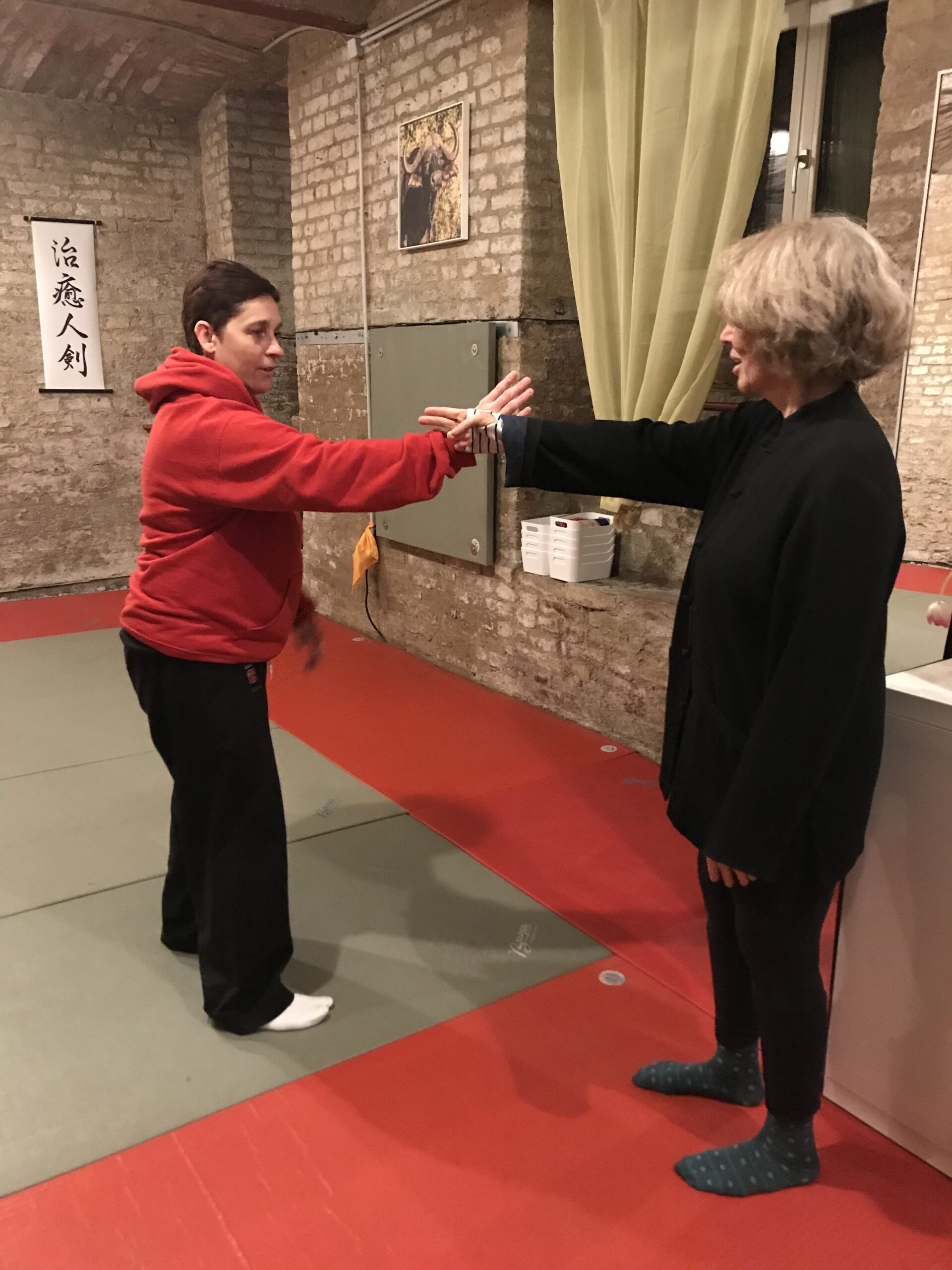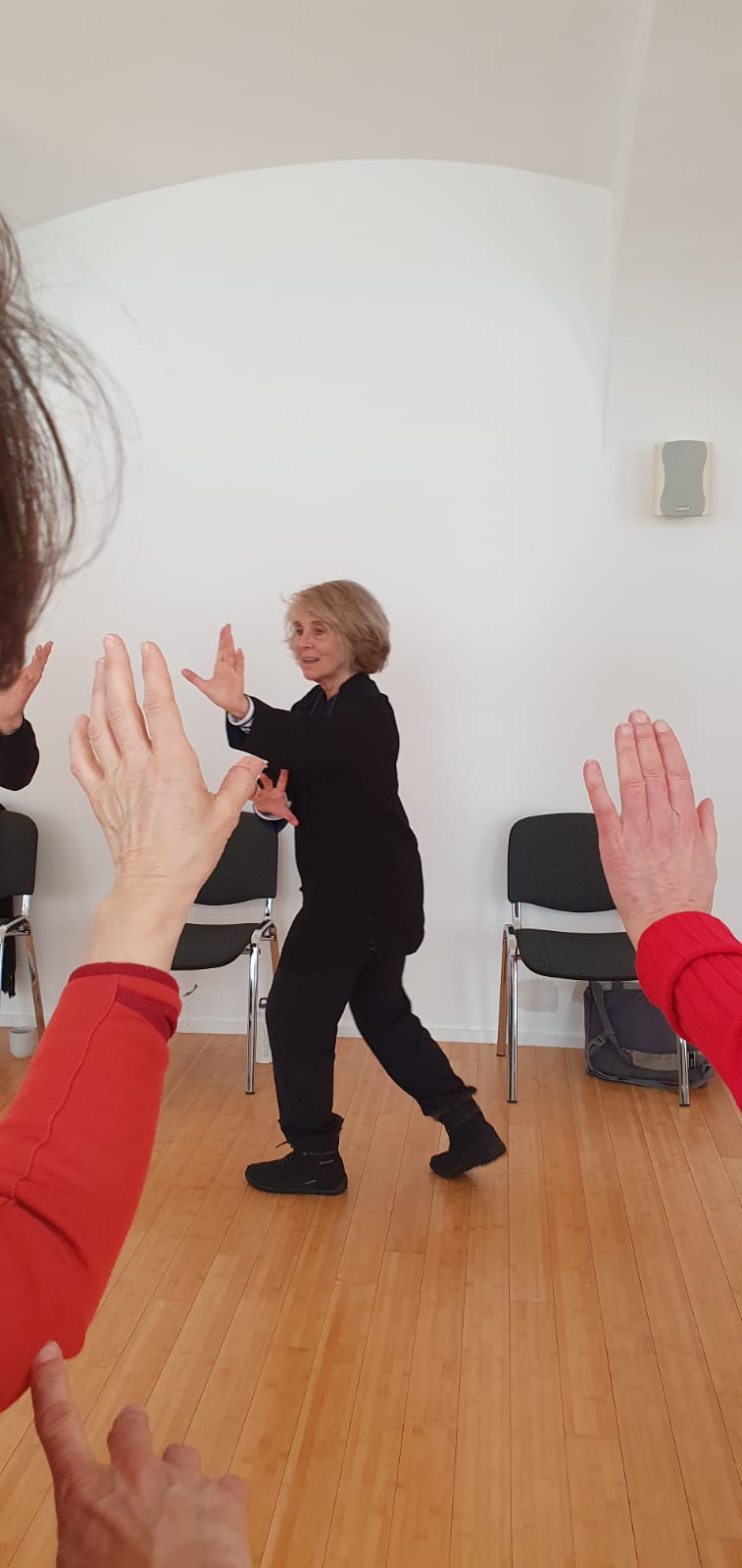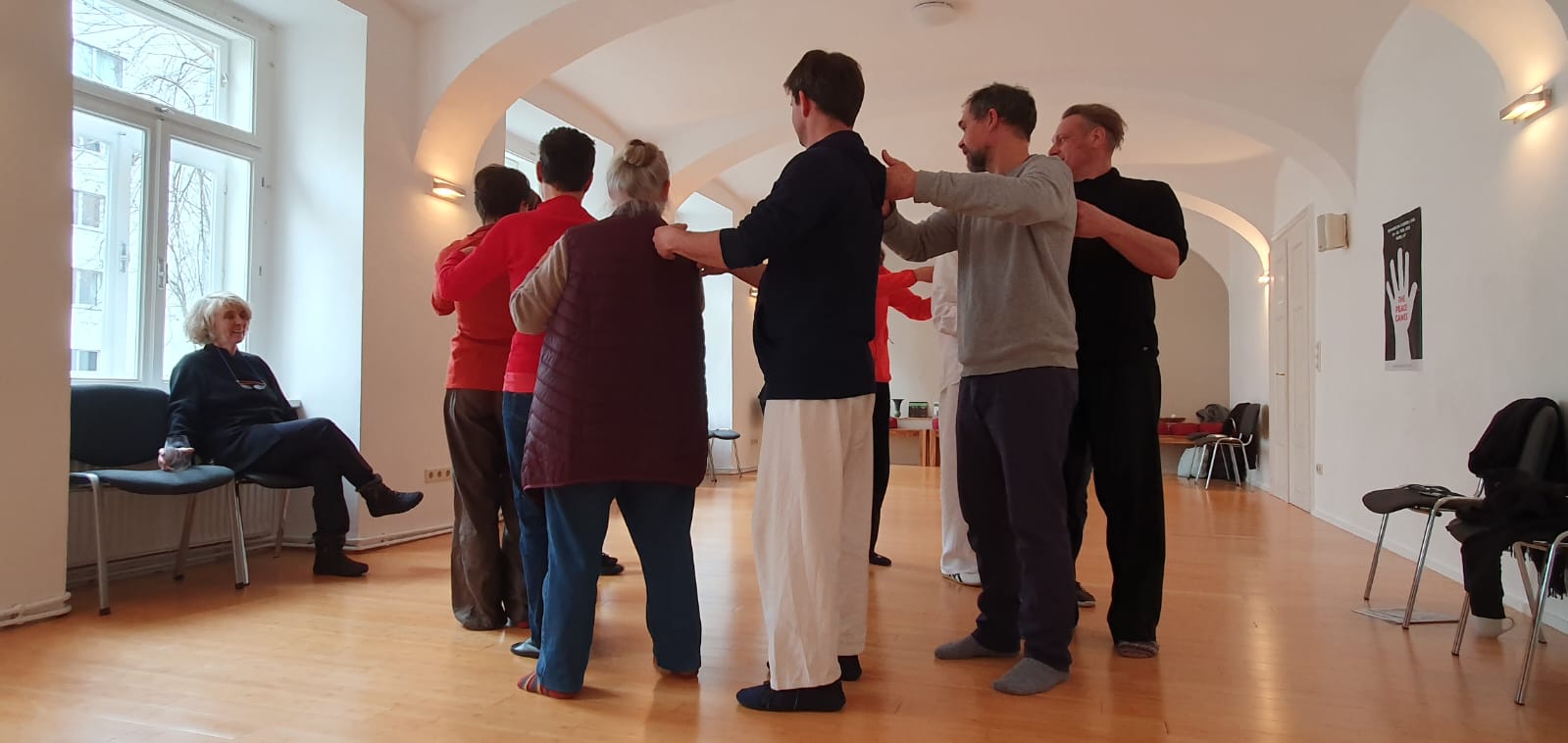HISTORY OF THE PEACE GAMES
Grandmaster Marilyn Cooper from CA/USA has been training Kung Fu since the mid-1960s and has been running her own school for Chinese martial arts since 1980 with a focus on promoting health and preventing violence. Her teachers were Sifu Kuo Lien Ying and Grandmaster Peter Kwok. Following the tragic 1999 child killings at Columbine High School[1] She began teaching Taiji for Kids at her youngest child's school. After 15 years of Taiji movement work with children and young people, Cooper developed a simplified movement concept from 9 coordinated solo, partner and group games based on her extensive knowledge and practice in Northern Shaolin, Taijiquan, Qigong and Bagua, and called it “Tai Chi Peace games". In the following years of practical application of the Peace Games, she refined and developed her concept and founded the NGO Pushing for Peace. As its president, Marilyn Cooper continues to carry her message to the world with undiminished commitment.
[1] Columbine High School – 1999 massacre in which two teenagers murdered and injured numerous classmates and teachers in a killing spree that was followed by many imitators.


Go to the people. Live with them. Learn from them. Start with what they know; build with what they have. But with the best leaders. When the work is done, the task accomplished, the people will say, we have done this ourselves! (Lao Tzu 700 BC)
During the Corona Pandemic 2020, Doris Nachtlberger became aware of the Pushing for Peace project via social media and contacted Marilyn Cooper. Realizing and recognizing the great potential of the "Peace Games", she decided to support the project and bring it to Austria. After extensive preparatory work, an initial event "The Peace Games - Conference" was held in Vienna in 2023, at which GM Marilyn Cooper had 16 participants Introduced the concept of "Tai Chi Peace Games".
Doris Nachtlberger was empowered by Marilyn Cooper and commissioned to spread the seeds of the "Tai Chi - Peace Games" and to train interested parties to become "Peace Games Practitioners".

EDUCATIONAL CONCEPT
The games are designed with the intention of allowing practitioners to experience peaceful connection with others while promoting relaxation and balance. In order to spread her concept, Cooper founded the NGO "Pushing for Peace" with like-minded people. The "Peace Games" were refined and spread worldwide: wherever there is a need for community and mental health promotion.
The pedagogical movement concept has a deliberately non-competitive character and dispenses with aggression and stress-promoting movement sequences such as e.g. Attack and defence, chase after or hide and seek. The playful exercises are rather suitable for people of all ages (from 2 years) to reduce the subjective feeling of stress or to increase the stress resilience.
In contrast to sport or competition-oriented exercise offers, the participants of the PG do not experience the other as an opponent who has to be defeated, but experience and experience a partnership and respectful togetherness.
The concept of the PG is aimed at harmonizing the players' body, mind and soul in joint action. On this basis, messages that promote human compassion are cultivated and violence-preventive seeds are planted through shared, moving, encountering and contemplating, which can not only grow on cognitive understanding, but also on physically positive experiences.
The exotically attractive exercises are fun and easy to learn and not strenuous. The movement sequences contain elements from systems of traditional Chinese martial arts such as Taiji, Shaolin Kung Fu, Bagua, Taoist mediation and Qigong.
They are carried out alone and in dynamic cooperation. All exercises create space for a friendly perception of yourself and others. At the same time, attentive mindfulness in dealing with oneself and with one another is trained.
Through this new body and movement-based experience, the participants experience grounding, centering, natural relaxation and lively joy, which promotes insight, ability and willingness to have a peaceful and compassionate attitude. The game character of the exercises should give the participants fun and joy and thus form an additional methodical gateway to a warm togetherness.

TARGET GROUPS
The PG are traditionally used as a measure to prevent violence, e.g. at schools in troubled areas, but also in refugee camps - generally wherever it is a question of overcoming the "limits in people's heads in the form of enemy images of all kinds" and promoting what is common in humanity while affirming their diversity.
The PGs are suitable for young and old as well as for people with disabilities and do not require any special physical or intellectual abilities on the part of the participants. No prior knowledge of Chinese martial arts is necessary. The games can be played with 2 participants and are also suitable for very large groups. The program is flexible and adaptable to both the number of participants and their age.
As a supplementary body and movement-oriented intervention, the PGs have also proven themselves in the psychotherapeutic context and in the coaching of people, eOn the one hand, to gain new access to the working relationship with the clientele (relationship work), or, on the other hand, to make inner processes visible/conscious and also to bring about a desired change. The games can also be integrated into larger group learning processes (e.g. team building) as an important part of the experience.

